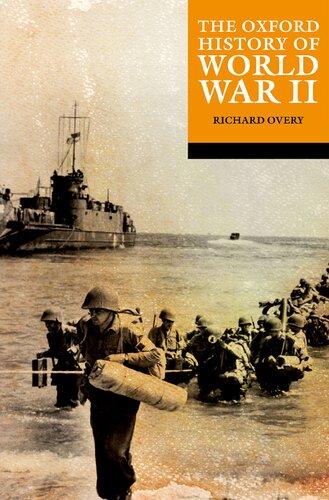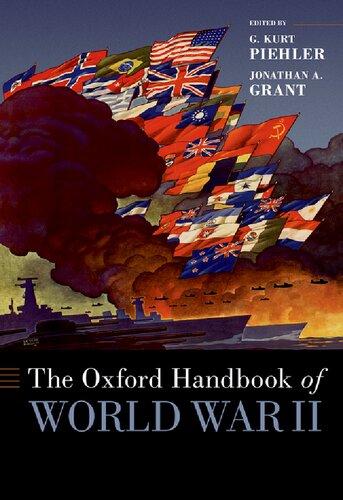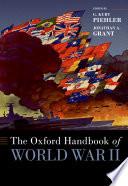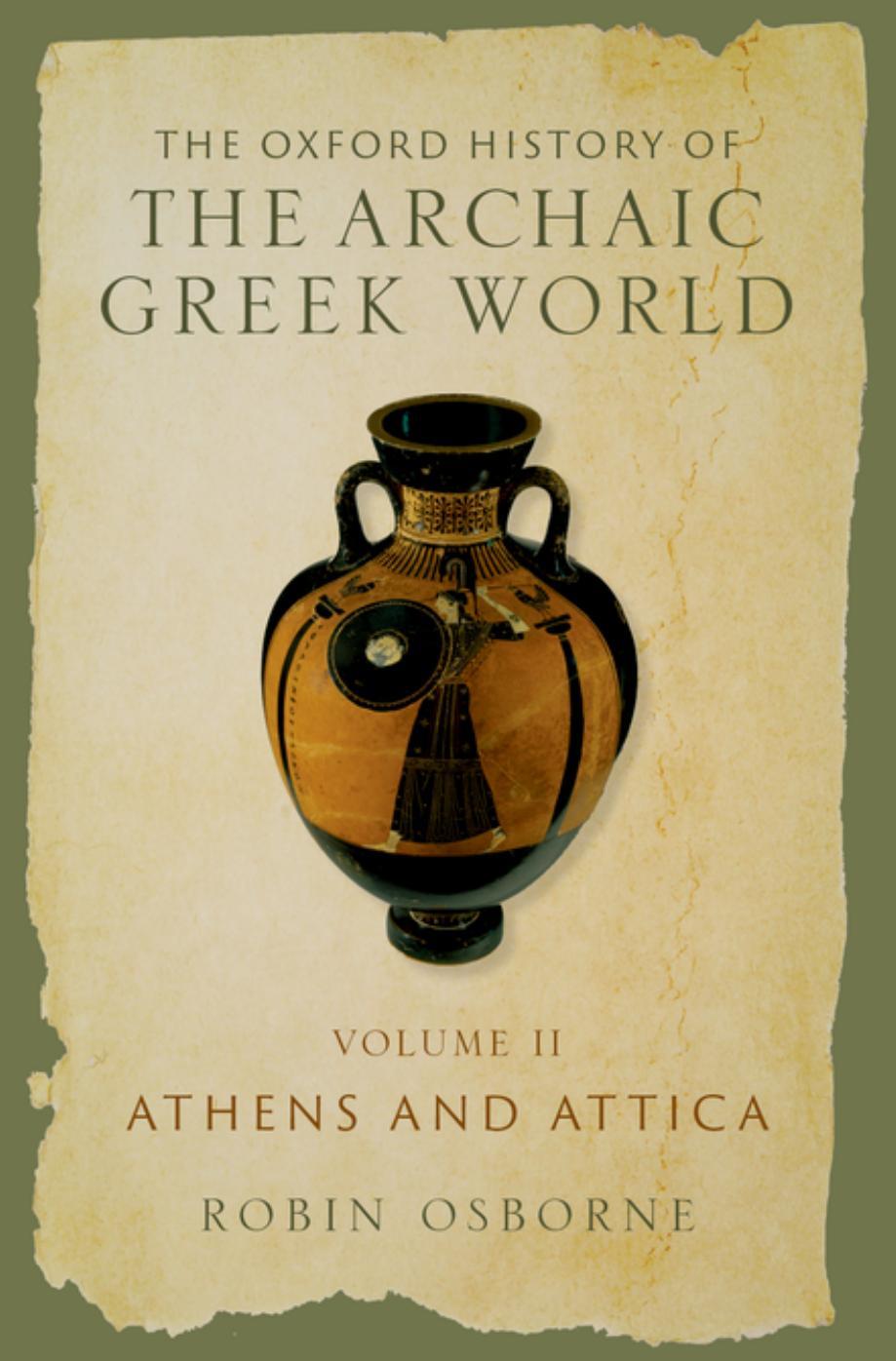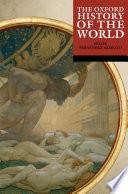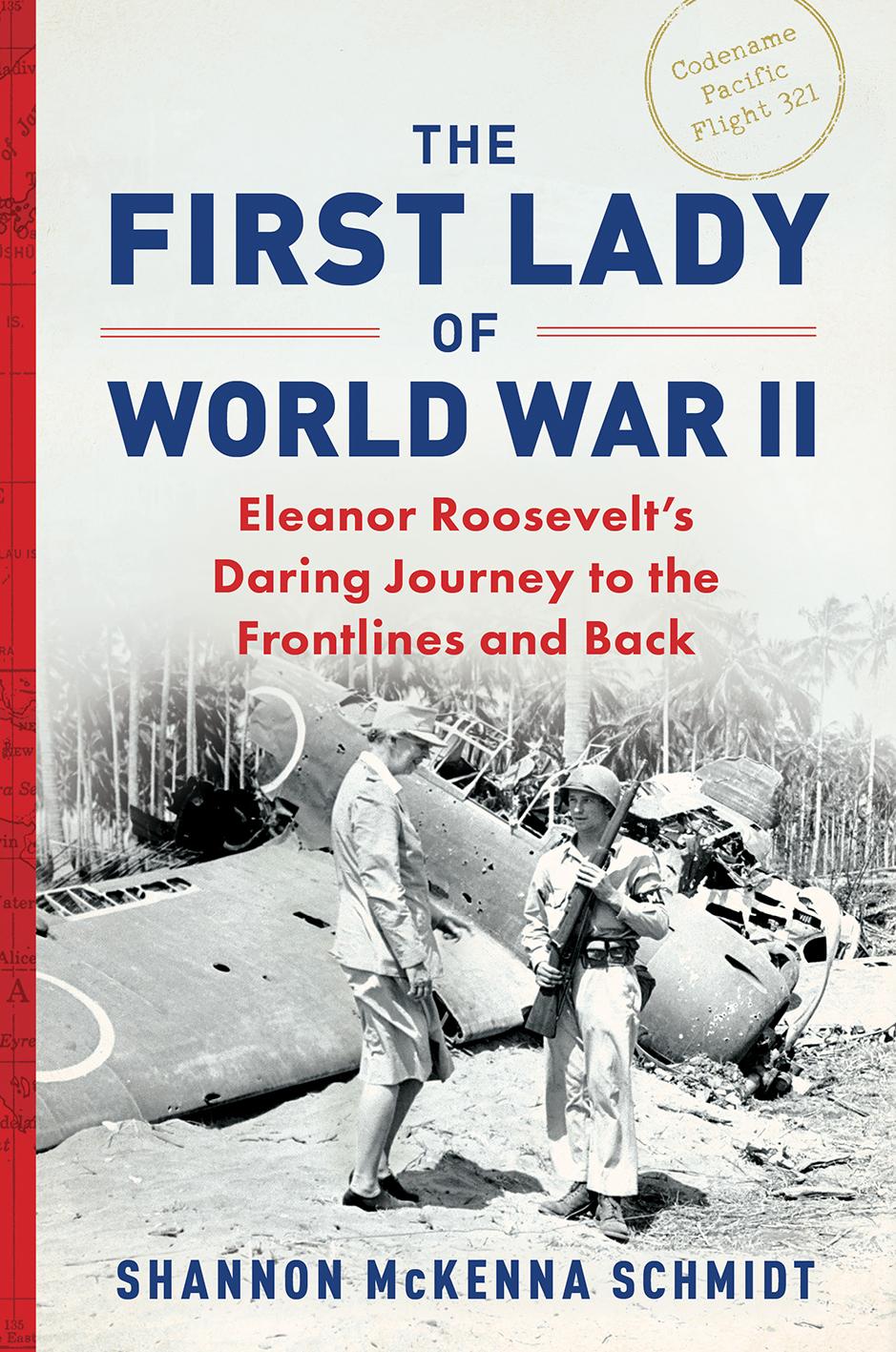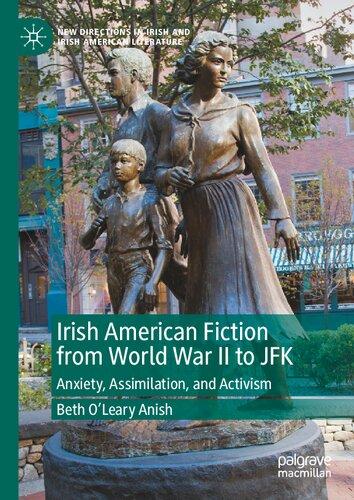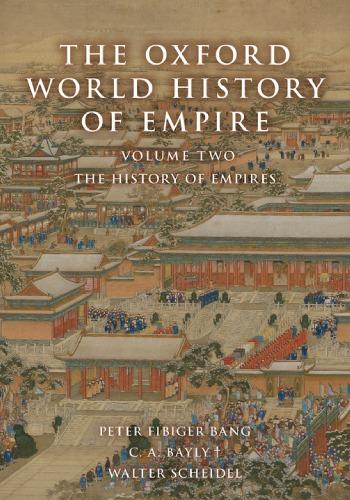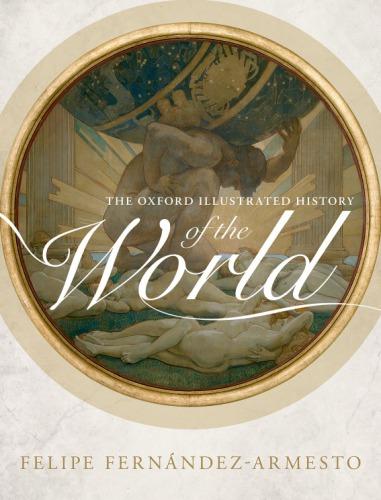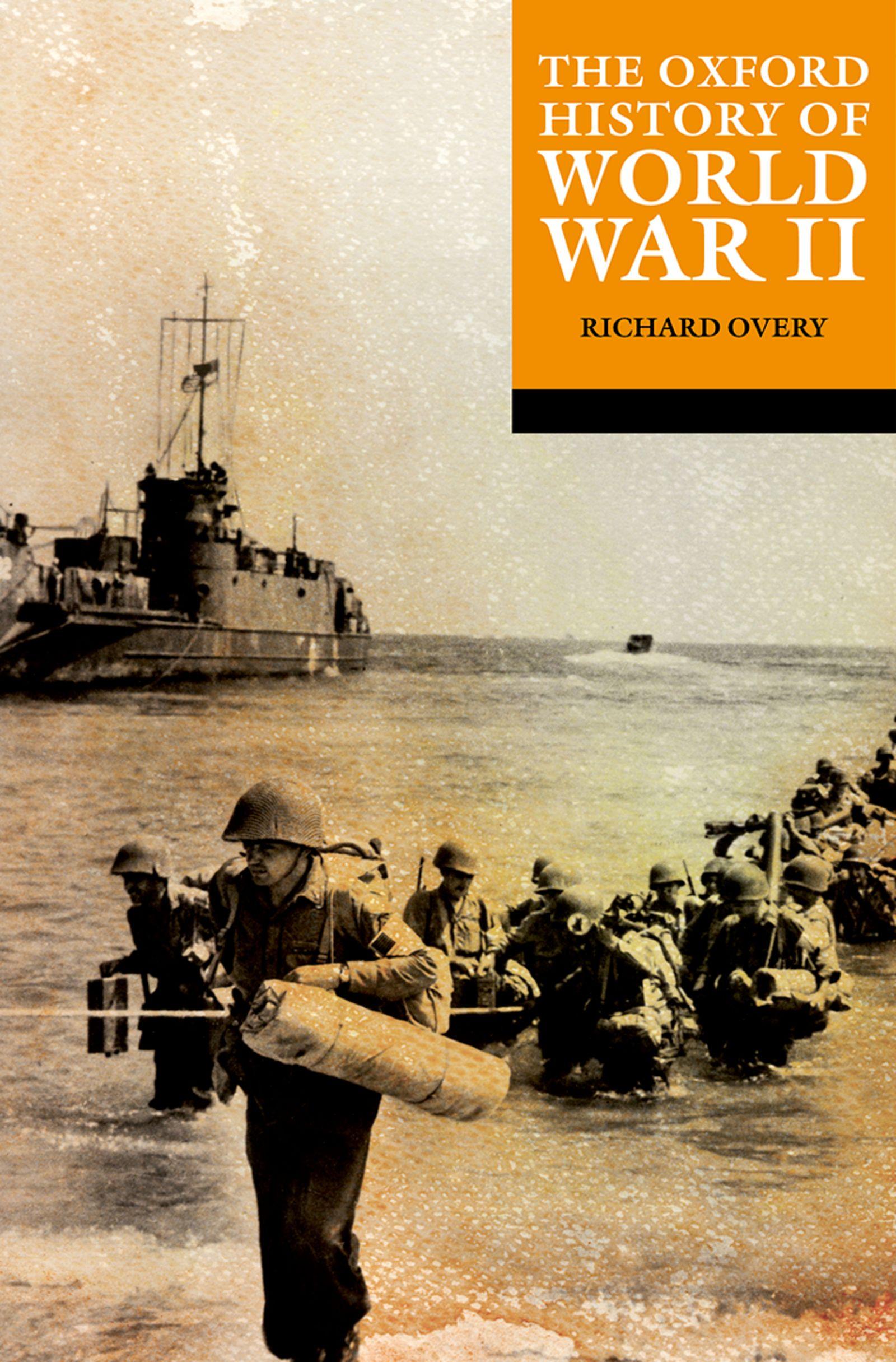The Oxford History of World War II 1st Edition Richard
Overy
Visit to download the full and correct content document: https://ebookmass.com/product/the-oxford-history-of-world-war-ii-1st-edition-richard-o very/
More products digital (pdf, epub, mobi) instant download maybe you interests ...
The Oxford Handbook Of World War II 1st Edition G. Kurt Piehler
https://ebookmass.com/product/the-oxford-handbook-of-world-warii-1st-edition-g-kurt-piehler/
The Oxford Handbook of World War II G. Kurt Piehler
https://ebookmass.com/product/the-oxford-handbook-of-world-warii-g-kurt-piehler/
The Oxford History of the Archaic Greek World: Volume II: Athens and Attica Robin Osborne
https://ebookmass.com/product/the-oxford-history-of-the-archaicgreek-world-volume-ii-athens-and-attica-robin-osborne/
The Oxford History of the World 1st Edition Felipe Fernández-Armesto
https://ebookmass.com/product/the-oxford-history-of-theworld-1st-edition-felipe-fernandez-armesto/
The First Lady of World War II Shannon Mckenna Schmidt
https://ebookmass.com/product/the-first-lady-of-world-war-iishannon-mckenna-schmidt/
El Niño in World History 1st Edition Richard Grove
https://ebookmass.com/product/el-nino-in-world-history-1stedition-richard-grove/
Irish American Fiction from World War II to JFK
https://ebookmass.com/product/irish-american-fiction-from-worldwar-ii-to-jfk/
The Oxford World History Of Empire Volume Two: The History Of Empires 1st Edition Edition Peter Fibiger Bang
https://ebookmass.com/product/the-oxford-world-history-of-empirevolume-two-the-history-of-empires-1st-edition-edition-peterfibiger-bang/
The Oxford Illustrated History of the World Felipe Fernández-Armesto
https://ebookmass.com/product/the-oxford-illustrated-history-ofthe-world-felipe-fernandez-armesto/
TheOxfordHistoryofWorldWarII
Thetwelvehistorianswhocontributedto TheOxfordHistoryof WorldWarII arealldistinguishedauthoritiesintheir field.
Theyare:
RICHARDBESSEL,UniversityofYork
PATRICIACLAVIN,UniversityofOxford
DAVIDEDGERTON,ImperialCollegeLondon
DAVIDFRENCH,UniversityCollegeLondon
ERICGROVE,LiverpoolHopeUniversity
NICOLALABANCA,UniversityofSiena
STEVENHUGHLEE,UniversityofBritishColumbia
EVANMAWDSLEY,UniversityofGlasgow
RICHARDOVERY,UniversityofExeter
GEOFFREYROBERTS,UniversityCollegeCork
MICHAELSNAPE,UniversityofBirmingham
DAVIDWELCH,UniversityofKent
TheOxfordHistory ofWorldWarII
Editedby RICHARDOVERY
GreatClarendonStreet,Oxford,OX26DP, UnitedKingdom
OxfordUniversityPressisadepartmentoftheUniversityofOxford. ItfurtherstheUniversity’sobjectiveofexcellenceinresearch,scholarship, andeducationbypublishingworldwide.Oxfordisaregisteredtrademarkof OxfordUniversityPressintheUKandincertainothercountries
©OxfordUniversityPress2023
Thetextofthiseditionwas firstpublishedin TheOxfordIllustratedHistoryofWorldWarTwoin2015
ThemoralrightsoftheauthorhavebeenassertedFirstpublished2015 Impression:1
Allrightsreserved.Nopartofthispublicationmaybereproduced,storedin aretrievalsystem,ortransmitted,inanyformorbyanymeans,withoutthe priorpermissioninwritingofOxfordUniversityPress,orasexpresslypermitted bylaw,bylicenceorundertermsagreedwiththeappropriatereprographics rightsorganization.Enquiriesconcerningreproductionoutsidethescopeofthe aboveshouldbesenttotheRightsDepartment,OxfordUniversityPress,atthe addressabove
Youmustnotcirculatethisworkinanyotherform andyoumustimposethissameconditiononanyacquirer
PublishedintheUnitedStatesofAmericabyOxfordUniversityPress 198MadisonAvenue,NewYork,NY10016,UnitedStatesofAmerica
BritishLibraryCataloguinginPublicationData Dataavailable
LibraryofCongressControlNumber:2023930054
ISBN978–0–19–288408–4
DOI:10.1093/oso/9780192884084.001.0001
PrintedandboundintheUKby ClaysLtd,ElcografS.p.A.
LinkstothirdpartywebsitesareprovidedbyOxfordingoodfaithand forinformationonly.Oxforddisclaimsanyresponsibilityforthematerials containedinanythirdpartywebsitereferencedinthiswork.
Editor’sPreface
TheSecondWorldWarisnowthreegenerationsaway,theanniversaryofitsendin2015seventyyearssincetheconflictformallyended. Thewarhasleftalongshadowacrossthesecondhalfofthetwentieth century.Memorializationofitsvictimscontinuesandpopularfascinationwithitshistoryisunabated.UnliketheGreatWarof1914–18, thesecondconflictaffectedliterallythewholeworld;itresultedin around fivetimesasmanydeaths;anditwaspunctuatedbyremarkablemomentsofdramaandsacrifice,allofwhichexplainsthat persistentinterest.Thechronologicaldistancefromthewarhas, however,allowedhistorianstothinkdifferentlyabouthowtodescribe anddefineit,howtoexplainitscourse,andaboveallwhatsubjects shouldnowconcernuswhenconsideringwartimeexperience. The OxfordHistoryofWorldWarII followsaproudtraditioninthePressin producingup-to-dateandvolumesonarangeofhistoricalsubjects. Thecurrentvolumeisdesignedtointroducearangeofthemesthat arelesscommonlyfoundingeneralhistoriesofthewarandwhich reflectcurrentdevelopmentsinhistoricalscholarship.Mytaskas GeneralEditorhasbeenmadeeasierthankstothequalityofthe differentcontributionsandthehelpfulnessandpatienceofthecontributorsduringtheeditorialprocess.Iamgratefultotheteamat OxfordUniversityPressforalltheirhelpinturningthisintoa successfulvolume,inparticulartoMatthewCotton,KimBehrens, KizzyTaylor-Richelieu,andPaulSimmons,whodrewthemaps.The resultis,Ihope,a fittingwaytore-examineaconflictthatwiththe passageoftimeremainsalivedexperienceforonlyafewbutwhich hasbecomeintheintervalavibrantexampleoflivinghistory.
RICHARDOVERY
ExeterandLondon,2014
RichardOvery
1.TheGenesisofWorldWar9 PatriciaClavin
2.TheJapaneseEmpireatWar,1931–194531 StevenHughLee
3.TheItalianWars68 NicolaLabanca
4.TheGermanWars104 RichardOvery
5.TheWestandtheWaratSea125 EricGrove
6.TheAlliesfromDefeattoVictory157 EvanMawdsley
7.FightingPower:War-MakingandMilitaryInnovation190 DavidFrench
8.EconomiesinTotalWar219 RichardOvery
9.FrontLineI:ArmedForcesatWar241 MichaelSnape
10.FrontLineII:CiviliansatWar275 RichardOvery
11.UnnaturalDeaths301 RichardBessel
ListofMaps
1.Axisterritorialexpansion,1938–42399
2.Japaneseterritorialexpansion,1931–42400
3.TheGermancampaigninPoland,September1939402
4.GermaninvasionintheWest,May1940403
5.TheBattleofBritain404
6.Japan’scampaignsinChina,1937–45405
7.Japan’sadvanceinthePacificWar,1941–2406
8.TheBattleoftheAtlantic,1943408
9.OperationBarbarossa,1941409
10.ThebombingcampaignsinEurope,1940–5410
11.ThewarinItaly,1943–5412
12.GermandefeatintheEast,1943–5413
13.TheHolocaustinEurope,1941–5414
14.TheAlliedinvasionofFrance415
15.ThedefeatofGermanyintheWest416
16.ThedefeatofJapaninthePacificWar417
17.ThecampaignsinBurma,1942–5418
18.TheColdWardivisionofEurope419
19.TheKoreanWar420
WorldWarIIwasthemostdevastatingconflictinrecordedhuman history.Itwasbothglobalinextentandtotalincharacter.Ithas understandablyleftalonganddarkshadowacrossthedecades.Yet itisthreegenerationssincehostilitiesformallyendedin1945and theconflictisnowalivedmemoryforonlyafew.Andthisgrowing distanceintimehasallowedhistorianstothinkdifferentlyabout howtodescribeit,howtoexplainitscourse,andwhatsubjectsto focusonwhenconsideringthewartimeexperience.
Forinstance,asWorldWarIIrecedeseverfurtherintothepast, evenaquestionasapparentlybasicaswhenitbeganandended becomeslesscertain.Wasit1939,whenthewarinEurope began?Orthesummerof1941,withthebeginningofHitler’ s waragainsttheSovietUnion?Ordiditbecometrulyglobalonly whentheJapanesebroughttheUSAintothewarattheendof 1941?AndwhatofthelongconflictinEastAsia,beginningwith theJapaneseaggressioninChinaintheearly1930sandonly endingwiththetriumphoftheChineseCommunistsin1949?
In TheOxfordHistoryofWorldWarII ateamofleadinghistorians reassessestheconflictforanewgeneration,exploringthecourseof thewarnotjustintermsoftheAlliedresponsebutalsofromthe viewpointoftheAxisaggressorstates.UnderRichardOvery’ s experteditorialguidance,thecontributionstakeusfromthegenesis ofwar,throughtheactioninthemajortheatresofconflictbyland, sea,andair,toassessmentsof fightingpowerandmilitaryand technicalinnovation,theeconomicsoftotalwar,thecultureand propagandaofwar,andtheexperienceofwar(andgenocide)for bothcombatantsandcivilians,concludingwithanaccountofthe transitionfromWorldWartoColdWarinthelate1940s.Together, theyprovideastimulatingandthought-provokingnewinterpretation ofoneofthemostterribleandfascinatingepisodesinworldhistory.
RichardOvery isHonoraryResearchProfessorattheUniversity ofExeter.Heistheauthorofmorethanthirtybooksonthehistory oftwentieth-centurywaranddictatorship,includingthehighly acclaimed WhytheAlliesWon (1995)andtheprize-winning The Dictators:Hitler’sGermanyandStalin’sRussia (2004).HeisaFellowof theBritishAcademyandamemberoftheEuropeanAcademyof SciencesandArts.Hisbookon TheBombingWar:Europe1939–1945 (2013)wonaCundillPrizeawardforHistoricalLiteraturein2014. Hislatestbook BloodandRuins:TheGreatImperialWar1931–1945 wonthe2022DukeofWellingtonMedalforMilitaryHistory.
Praisefor TheOxfordHistoryof WorldWarII
‘TheOxfordHistoryofWorldWarII isathoughtfulandthoughtprovokingvolume,whichsucceedsverywellinbringingatleast atasteofthewealthofcurrentSecondWorldWarscholarship toawideraudience.Thereismuchheretoadmire;notleastthe eruditionofthecontributors...anexcellent,conciseand enlighteningvolume.Assuch,itisaworthadditiontothelibrary ofeverystudentandeveryscholaroftheconflict.’
RogerMoorhouse, HistoryToday
‘Astimulatingandthought-provokingnewinterpretationofone ofthemostterribleepisodesinworldhistory.’
MilitaryHistory
‘TheOxfordHistoryofWorldWarII isanexemplarybookthat... providesaninsightfulandin-depthanalysisofthewarfromboth sides’
Ireland’sEye
‘combinesabreadthanddepthnotseeninmuchmilitaryhistory writing.Theskillfulanalysisofeachchapterdoesnotsacrifice narrativeabilitytoaddresstopicsrangingfromtheGerman, Italian,andJapaneseconductoftheland,sea,andairwarsto thepoliticalintricaciesoftheGrandAlliance,scientificinnovation,andtheculturalhistoryofthewar...Astounding.’
M.A.Mengerink, CHOICE
Introduction
TotalWar GlobalWar
RichardOvery
ItisacommonplacethattheSecondWorldWarwasbothglobalin extentandtotalincharacter.Andyetwiththepassageoftimesince theendofthewarin1945bothoftheserealitiesseemmoredifficultto explainthantheydidatthetime.Thatalmosttheentiresurfaceofthe earth,andtheskiesabove,shouldbeengulfedbywarisanextraordinary,uniquephenomenon.Eventhosenationsthatcouldremain neutralorweredistantfromtheactual fightingwereprofoundly touchedbywar.VolunteersfromneutralSpainwentoffto fight against ‘Bolshevism’ inHitler ’swarontheSovietUnion;neutral Swissbanksstockpiledgoldmelteddownfromthedental fillingsand jewelleryofmurderedEuropeanJews;farawayBrazildeclaredwaron GermanyandItalyin1942andsenttwodivisionsto fightinthelast stagesoftheEuropeanwarinnorthernItaly.FromtheAleutian IslandsinthenorthernPacificOceantothejungle-coatedislandof Madagascar,fromthedesertsofNorthAfricatotheharshArctic Ocean,statesfoughtadesperatewarforwhattheyregardedasjust causes.Thesheergeographicalscaleofthewarisachallengetoany historyoftheconflict,anddemandsitsownexplanation.
ThegeographyoftheSecondWorldWarwasdictatedbythe ambitionsoftheaggressorstates Germany,Italy,andJapan(and theSovietUnionin1939–40inPolandandFinland) inaworld whereglobalandregionalsecuritysystemscouldnolongereffectively function,astheopeningchaptershows,eitherthroughtheoperation ofself-restraintorthroughcoercion.Eachofthesestatespursueda numberofdistinctlyseparatewarstotrytocreatenewsecurity
regimestoprotectandsecuretheirinternationalstatus.Althoughthe ambitionsofthethreeso-called ‘Axis’ stateswereconfinedtotheir ownspheresofinterestor ‘neworders’ inEurope,theMediterranean, andAsia(definedintheTripartitePactsignedinBerlininSeptember 1940),theconflictseventuallycoalescedintoworldwarprincipally becauseoftheglobalreachoftheWesternAllies Britain,theBritish CommonwealthandEmpire,andtheUnitedStates andtheglobal natureoftheaggregatethreatthattheyperceived.
Theterritorialspreadofconflictfromthemid-1930swasliterally worldwide.ItalyfoughtwarsagainstEthiopiain1935–6,inSpainto helpFranco,brieflyagainstFranceinJune1940,andthenagainstthe BritishCommonwealthinAfrica,beforeinvadingGreeceinOctober 1940andopeningaBalkanfront.Germanybeganwithawaragainst Polandon1September1939thatgrewimmediatelyintoawarwith BritainandFrance;inFebruary1941GermanforcessetupaMediterraneanfront;inJune1941anotherwarwaslaunchedagainstthe SovietUnion,distinctfromthewarintheWest;inDecember1941 warwasdeclaredontheUnitedStates.Japanbeganaggressionin Chinain1931–2,escalatedtheconflictintofull-scalewarinJuly 1937,foughtbrieflyagainstSovietforcesin1938and1939onthe Manchurianborder,and finallyaddedamajorcon flictinthePacific OceantheatreagainsttheUnitedStates,Britain,TheNetherlands, Australia,andNewZealand.Thoughattimestheseaggressivewars werelinked forexample,GermanhelpforthefailingItalianarmyin NorthAfricaandGreece theyweregenerallyfoughtasseparate contests,whichiswhytheyaredealtwithinthisvolumeasthreesetsof wars,oneeachforJapan,Italy,andGermany.
Thegeographyofthewarwasalsoshapedbythesearchfor economicsecurity.Japaneseaggressionwaslargelyfuelledbythe beliefthattheresourcesofmainlandChinaandSouth-EastAsia werenecessarytoprovideJapan’speoplewithlong-termeconomic benefitsthatcouldnolongerbeobtainedfromtheconventionalworld tradingeconomy.Hitler’swaragainsttheSovietUnion,forallits emphasisonaclashofideologies,wassupposedtoengrosstheraw materialandagriculturalresourcesofEurasiatosupportaneconomicallyindependentandwealthyGermanimperialcentre.Italy’ swar againstBritishCommonwealthforcesinEgypthadtheSuezCanal andtheoiloftheMiddleEastasaprobableprize.Sincemodern
mechanizedwarfare,airwar,andnavalpoweralldependedonoil, themodestoilresourcesoftheaggressorstatescouldonlybereversed, soitwasbelieved,byconquest.FortheWesternAllies,endowedwith largemerchantmarinesandnavies,securitymeantkeepingavailable distantsourcesofsupply(particularlyofoil)anddefendinglongtransoceanictraderoutesthatwereessentialtoboththeAlliedwareconomiesandthepursuitofaglobalstrategy.Bothsidesdidwhatthey couldtodenyresourcestotheotherthrougheconomicwarfare measures,bombing,orsubmarinewar,withtheresultthatwarfare atseaandintheairspreadoutfarbeyondthe fightingfront.
Economicmobilizationowedmuchtothenecessityofsecuringnew resourcesbutitwasalsodeterminedbythesheerscaleofthe fighting. Totalwarwasatermusedlooselyatthetime,suggestingawar withoutlimits,involvingthemobilizationofeconomic,human,intellectual,andtechnicalresourcestotheirfullestextent.Sinceinthe 1930sthiswastheprevailingviewofwhatfuturelarge-scalewarwould looklike,nomajorstatecouldaffordtoriskwarwagedatanylower levelofmobilization.Thedemandsoftotalwarwereneverthelessnot uniform.TheUnitedStateswithitsvastresourcesandwealthmobilizedonlypartofitseconomyandstillout-producedallothernations. TheSovietUnionwasforcedbytheAxisinvasionin1941touse everythingavailableintheunoccupiedzoneto fightthewar,evento thepointofallowingtheoldorinfirmtodieratherthanuseupscarce foodrations.Theaggressorstatesmobilizedtheirresourcesforsome formoftotalwarbutthemobilizationwasalwaysagamblethatswift militaryvictorycouldbesecuredbeforetheevidenteconomicweight oftheAlliedpowerscouldbebroughttobear.Whenthehopefora quickvictoryevaporated,thegamblecontinued,butby1943–4itwas evidentthattheresourcebasefortheAllies,aslongasitwasusedin militarilyeffectiveways,wouldovercomeAxisresistance.Theturning ofthetidewasbynomeansautomaticorpredictable,butthechapters hereonAlliedvictoryatsea,intheair,andonthegroundshowhow allthreemajorAllieslearnedhowtousetheirresourceswithgrowing operationalandtacticalskill.
Economicfactorsclearlymatteredinexplainingthenatureand outcomeofthewar;iftheGermanarmedforceshadcapturedthe Caucasusoil,orRommelandtheItalianshadcapturedtheoilofthe MiddleEastthewarmightwellhavetakenaverydifferentpath.But
economicfactorsexplainonlypartoftherealityoftotalwar,whichis whytherearealsochaptershereon fightingpower,themobilization ofscienceandtechnology,andthepropagandaeffortsmadetosustain thecommitmentofthehomefronttothecontest.Thewarwitnessed dramaticchangesintheorganizationofarmedforcesandinthe scientificandengineeringresourcesavailabletothem.Biplaneswere stillinuseinsomeairforcesin1939;by1945thejetagehadalready dawned.Theuseofradarwaslimitedin1939,chieflybytheearly long-wavetechnologyavailable;by1945short-wavecentimetric radar,basedonexploitingthewartimeinventionofthecavitymagnetron,hadrevolutionizeditsuse.Tanksweregenerallyslow,small, andpoorlygunnedin1939,butby1945theGermanTigerandthe SovietIS-2(JosephStalin)pavedthewayforthemodernbattletank. Rockets,cruisemissiles,and,mostsignificantly,nuclearweaponswere allinusebythewar’send,anticipatingthemilitarystand-offsofthe comingColdWar.Howarmedforceswereusedwasalsorevolutionizedduringthewar:theintegrationofairpowerwiththeoperations ofarmiesandnaviestransformedthelatter’sreachandstrikecapability,whiletheuseofmobileforceserodedtheold-fashionedinfantry divisionandreplaceditwithmotorizedandmechanizeddivisions, self-containedandfast-moving.Successinplanningandresourcing thesechangesplayedanimportantpartinearlyAxisvictoriesbutalso intheeventualsuccessoftheAllies.
By1945mostservicemenwererecruitsfromthecivilianworld ratherthancareersoldiersorsailorsandtheorganizationofhuge armedforces,numberingtensofmillions,raisedquestionsnotonly abouthowtheyweremanagedandresourced,butabouthowthey couldbepoliced,entertained,orcomfortedenoughtokeepthem fighting.Achapteronthesocialandculturalhistoryofthefrontline setsouttoexaminearmedforcesassocialorganizations,notjustas fightingunits.Theotherfrontlineexploredhereisthehomefront. Theissueofciviliancommitmenttowarwasalsoanintegralcomponentofthewagingoftotalwar,partlybecauseoftheextremepressuresexertedoncivilianpopulationsthroughbombingcampaigns, stateterror,strictlimitationofexistingfreedoms,hunger,anddisplacement.WhentheEuropeanwarcamein1939,statesfearedthat city-bombingmightbringaboutwidespreadcivilianpanicand demandsforpeaceatanyprice.TheGerman,Italian,andSoviet
dictatorshipsmonitoredtheirpopulationsdailywithunscrupulous zealtomakesurethatanysignofdissentcouldbequashed.Atthe sametimeeveryeffortwasmadetoensurethatthefactorswhichhad debilitatedthewareffortsin1914–18 inflation,hunger,theblack market,working-classunrest wouldnotdosoasecondtime,even underextremeconditions.Demoralizationatmilitaryfailurewas anothermatter.Everymajorstatemanipulatedthenewsthatits populationcouldhear,developedsophisticatedregimesofpatriotic propaganda,undertookpoliticalwarfareagainstitsenemies,andtried topaintapictureofthewarthatmaskedthetruth.WhenAmerican pollsterscarriedoutasurveyamongcapturedJapanesecivilianson SaipaninFebruary1945,theyfoundthatamajoritystillbelievedthat Japanwouldsecurevictoryintheend.Thepropagandaandinformationwarwasacriticaldimensionofwar-makingandrightlyhasan entirechapterdevotedtoit.
Nevertheless,civiliansdidnotjustsustainthewareffortbecause propagandatoldthemtodoit.Therehadtobesomesensethatthe causewasjustandthatthesacrificesimposedrepresentedanecessary expedienttoensurevictory.Civiliansalsohadto findthemeansto helpthemselvesinthefaceofbombingandotherwar-relatedhardships.Civildefencereliedonmillionsofcivilianvolunteerswhotook manyrisksmoreusuallyassociatedwiththearmedforces,andsufferedheavycasualtiesasaresult.Theydidsonotperhapsprincipally todefendsomeabstractprinciple,buttoprotecttheirfamiliesandthe urbanenvironmentfromdestructionandtosustainasenseofhomefrontmobilizationwidelyregardedasappropriateforatotalwar betweenwholesocieties.Popularcommitmenttowaralsorestedon sentimentssuchasfearorrevengeoranger,butyearafteryearthese weredifficultsentimentstosustain.Victorybecameanendinitself, themeanstoensuresurvivalandtolimittheexistentialthreatposed bytheenemyorthe ‘other’ .
Thisalsoexplainstheharshtreatmentmetedouttoallthosewho weredeemednottobelongtothe fightingcommunityorwhowere believedtobesubvertingitsstruggle.InBritainandFrancein 1939–40alienswereroundedupandinterned;intheUnitedStates theJapaneseAmericansweresentintointernalexileinspecially constructedcamps;intheSovietUnionthehabitsofsuspicionand denunciationcontinuedtofeedtheGULagcampsandlabour
colonies.TheworstexamplesweretobefoundintheAxisstates whichusedtheirterritorialconquestsassitesforextremediscriminationandviolence.The ‘ enemy ’ nowinsidetheconqueredareaswas definedaspartisanorterroristorsubversiveandsubjectedtosavage reprisals.ThechiefenemyofthenewGermanempirewasdeemedto betheJewandalmostsixmillionEuropeanJewspaidforthatcruel stigmatizationwiththeirlives.Sotoodidhundredsofthousandsof hostages,civilianprisonersandlabourers,prisoners-of-warandpoliticalopponents.Thepatchworkofvictimscoversmanydifferentcategories;thepatchworkofperpetratorsislessdiverse.Thekillingwas carriedoutbysecurityagents,secretpoliceforces,regularsoldiers, andpolicemilitiausingmethodsthatwereimprovisedandbloody sobloodyinthecaseofthegenocideoftheJewsthatface-to-face killingwasreplacedin1942byfactoriesofdeath,wheretheend productwaspilesofboneash.Thesemillionsofvictimssuffered whatiscalledherean ‘unnaturaldeath’,onethatwouldnothave occurredbutforthetwistsandturnsofthewar.Aboveallthevictims sufferedfromthepoisonoussearchforvengeanceinsystemsthatcould seethatthewritingwasonthewallandlookedforsomeonetopunish.
VictoryfortheAllies(ortheUnitedNationsastheycalledthemselvesfromJanuary1942)didnotendtheviolenceanddiscrimination,andinsomecases,principallyineasternEurope,sustainedit. The finalchapterinthevolumeexploresthecomplexandmessyend tothecon flict.TheoldempiresfacedacrisisprecipitatedbytheAxis searchfornewempires.InVietnam,Indonesia,India,andBurmait provedimpossibletoreimposeEuropeanruleandallwereindependentby1954.IntheMiddleEastthesystemofmandatesfromthe LeagueofNationsthathadallowedBritainandFrancetodominate theregioncollapsedandindependentArabstatesemerged.They werechallengedin1948bytheunilateraldeclarationofanindependentstateofIsraelbytheJewsofPalestine,whichresultedinthe first Arab–Israeliwar.IneasternEuropeoldfrontierswererestoredor,in thecaseofPoland,shiftedwestwardattheexpenseofGermansand Poles,tosatisfySovietdemandsforformerPolishterritoryinwestern Ukraine.InsurgenciescontinuedintheBalticStates,Ukraine,and PolandagainsttheimpositionofSovietrule.Thesearmedstruggles continueddowntothelate1940s.InGreecetheendofAxisrule createdthecircumstancesforcivilwarasNationalistsand
MonarchistsfoughtagainsttheCommunistpartisans.Allofthese strugglestookplaceagainstatideofhardship hunger,forcedemigration,inflation,andexpropriation.
Thepost-warcrisesdidnotprovokeWorldWarIII,aswaswidely fearedinEurope,chieflybecausetheinternationalorderwasstabilizedaroundtherealityofSovietandAmericanpowerandthe weaknessofabatteredEuropeandAsia.GermanyandJapan weretemporarilydisarmedandneveragainposedaregionalthreat, theirmilitaryandnationalistelitesentirelydiscredited.In1945the victorstatesestablishedtheUnitedNationsOrganizationinthe hopethatthiswouldbeamoreeffectivefactorforavoidingor controllingconflictthantheLeagueofNationshadbeenbefore thewar.Americancontributionstorevivingtheworldeconomy provedtobeessentialbothmateriallyandpsychologically,though ironicallyitwaswaronceagain,intheKoreanpeninsula,that stokedthestartoftheextraordinarypost-warboominthenonCommunistworldafter1950.UndertheshadowoftheSoviet–Americandual-powersystembothChinaandIndiabeganthelong pathtotheirlaterroleasmajorpowers.IndiaandPakistangained independencein1947(thoughatthecostofaviciousreligious conflictbetweenHindusandMuslims),whileChinabecameunified asaCommuniststatein1949attheendofaprolongedcivilwar. Aftermorethanadozenyearsofviolence,Asiaachieveditsmodern politicalgeography.
TheSecondWorldWaranditsconfusedaftermathbroughttoan endalongperiodinwhicheconomicandpoliticalmodernizationhad encouragedthedissolutionofoldempiresandpoliticalstructures acrosstheworld,thrownupnewforcesofmassnationalism,and createdthetechnicalmeanstomobilizeandarmvastmilitaryforces. TheFirstWorldWarwasasymptomofthosechangesbutitsconclusionleftmanyoftheissuesunresolved.Widespreadeconomicinstability,nationalresentments,anti-colonialstruggles,andideological confrontationsfollowedinthewakeofthe firstwar,encouragingby the1930sawaveofcivilandinternationalconflictswhichmerged togetheronlylaterintowhatisnowcalledtheSecondWorldWar. Thevacuumthathadexistedinthepowerrelationsofthe1930swas filledafter1945bythetwosuperpowers,buttheharshexperienceof war,withperhapsasmanyas fifty-fivemilliondead,andmillions
morescarredphysicallyandpsychologically,wasofitselfenoughto promptawidespreadacceptanceofthenewstatusquoandan aversiontothenationalismandmilitarismthathadfuelledthebelief thatwarwastheonlyinstrumenttosecureabetterorder.Selfrestraintasmuchasmutualdeterrencehaskepttheworldfroma thirdcataclysm.
1
TheGenesisofWorldWar
PatriciaClavin
TheoriginsoftheSecondWorldWarlieintheFirst.Buttheroute fromtheconflictof1914to1918toitssuccessorwasnotasdirectasit firstappearedtothemenandwomenwhotookuparmsin1939 withinagenerationofthe first.InEurope,wheremostofthe fighting hadtakenplace,almosteveryfamilyhadamemberwhohadbeen killedorwounded.Historiansmaynowdisputewhetherthe ‘Great War’ wasthe first-ever ‘totalwar’,atermcoinedatthetimetoimply theintegrationoforganizedcombatandthesocieties,economies,and politicalsystemsthatsupportedit,buteveryonewastouchedbyits effects.
Peace,thoughdeclared,wasslowincoming.Officially,thearmisticebeganontheeleventhhouroftheeleventhdayinNovember 1918,anditwasthenthatthe firstestimateofthecosts,thatalmost defiedtheimagination,couldbemade.Historiansnowputthenumberofwardeadatbeen9.4andelevenmillionpeople,a figurethat amountedtoover1percentofEurope’spopulationin1913.On average5,600mendiedforeverydaythewarcontinued,andinjured soldiershadsomeoftheworstwoundseverseen.Approximately 755,000Britishmenand1,537,000Germansoldiers,forexample, werepermanentlydisabledinthewar,andthroughoutEuropethe careofdisabledveteransposedanimportantchallengetopost-war reconstruction.Sodidthedestructionofhomes,factories,andfarm landtothetuneofaround$30,000millioninthewarzones.Italso haddramaticpoliticalconsequences.ThewarshatteredtheAustroHungarian,Russian,German,andOttomanEmpires,andmarked withthemthedecliningroleofthemonarchyinhistory.Atthesame time,thelocusofglobalandeconomicpowermoved firmlyawayfrom
westernEuropetotheUnitedStates,andsawNewYorkdisplace Londonasthecentreofworld finance.
Inthelongrun,thedevastationwroughtbythewarimpairedthe abilityoftheWesternpowerstorespondtothethreatofanother, potentiallymoredestructivecon flict,evenastheleadersofJapan, Germany,andItalyactivelypreparedforit.Moreimmediately,the ‘GreatWar’ providedtheRussianBolshevikswiththeopportunityto launchabidforpowerinNovember1917,triggeringabittercivilwar thatbroughtrenewedsufferingtopeoplesofwhatwasin1924to becometheUnionofSovietSocialistRepublics(USSR).Thecivilwar shapedboththeinternalcharacteroftheCommunistregime,andits foreignpolicy,whichwasbornoutofadeepsuspicionandhostilityto thepowersthathadsupportedthe ‘WhiteGuard’ fightingagainstthe RedArmy.TheseincludedtheforcesoftheAlliesandAssociated Powers notablytheFrenchandBritishEmpiresandDominions, Japan,andtheUSA butalso,forportionsofthecivilwar,theforces ofGermanyandAustria-Hungarytoo.Theresultantantagonismwas mutual.ThesuccessfulCommunistrevolutioninspiredcopy-catrisingsinHungaryandGermany,aswellasCommunistmovements aroundtheworld,andtheideologythatsoughttoleadtheurban workingclassesand,increasingly,impoverishedpeasantsintorevolutionwasaspectrethathauntedrelationsbetweentheUSSRandthe capitalistpowers.
Conflictdidnotjustcontinuealongwhathadbeencalledthe EasternFrontafterpeacewasdeclared.Politicalviolenceescalated dramaticallyinIrelandandChinawhile,alongthebordersofcollapsedstatesandempiresincentralEurope,menandboyswhowere formallydemobilizedcontinuedto fightforthespoilsofwar.Muchof thisviolencecanbetracedbacktothedramaticeruptionofrevolution inRussiathatbytheendof1917sawtheformerterritoriesofthe RussianEmpireengulfedincivilwar.In1918anestimated143 millionpeoplelivedinthelandsformerlyclaimedbytheTsar,but whenthecivilwarendedin1921(butbeforethemassstarvation began)thepopulationhadfallento134million.Politics,too,wasthe continuationofwarbyothermeans.InpartsofEuropeandinJapan, theGreatWarfacilitatedthecontinuedmilitarizationofdomestic politics,particularlyinGermany,Austria,andItaly,wherewarveterans wereapotentpoliticalforce.
Mostgovernments,whetheroldornewlyestablished,facedtesting questionsathomeasaresultofthepromisesmadebythosewho governedbetween1915and1918tosustainthewareffort,asdid politicalpartieswhichsoughtpublicsupportinelectionsthatwere widespreadattheendofthewar.Nationalpoliticsnowfrequently turnedontheissueof ‘rights’.Theseincludedtherighttovote independentoflandownership,especiallyforwomen;togreater representationbyminoritygroupsandcolonizedpeoples;andto improvedsocialrights,notablyinthe fieldofemployment,housing, andsocialprotection.
LegaciesoftheFirstWorldWar
Forthe firstfouryearsaftertheFirstWorldWar,then,peacewas observedasmuchinthebreachasinthemaking.Theemerging languageofrightsaroundtheworld,andthesenseofentitlementit represented,pointedtotheprofoundchangesunderwaybetween peoplesandorganizationsthatclaimedtorepresentthem.This posedasubstantial,butnotyetaninsurmountable,challengeto internationalrelationsbecausetheendofthewarindicatedcommon challengesandsharedproblems.Butstateslargelysoughttotackle theseissuesonanationalbasisinwaysthatgeneratedill-feeling betweenthem.Despitethewidespreadandheartfeltdesireforpeace in1918,theinternationalco-operationthathaddistinguishedthewar effort,particularlyamongthevictoriouspowers,gavewaytonarrowly definedself-interest;theinternationalismofwargavewaytothe nationalismofpeace.Thechangecouldbeplottedinthegapthat emergedbetweentheUSPresidentWoodrowWilson’sfamous ‘FourteenPoints’ thatformedthebasisforpeacenegotiationsbetween JanuaryandNovember1918,andthepeacetreatiessignedatthe ParisPeaceConferenceof1919.
Wilsonhadaspiredtoanewdiplomacythatwouldbanishthe dangerouspracticesofbilateralalliancesandsecrettreatiesthathe believedledtowar.Hiskeytoa flexibleand ‘healing’ peacesettlement wasanewinternationalorganization,theLeagueofNations,which wouldworktoresolvecontentiousissuesbetweenstatesafterthepreliminaryworkatPariswasdone.Astheshort-livedAmericanundersecretaryoftheLeagueofNations,RaymondFosdick,putitin1919,
thehopeofthesituation ifthereisanyhope liesintheLeagueof Nations.CantheLeague,byexerciseofitssomewhatvaguelydefined powers,eithernoworinthefuture,sosoftenthesharpedgesofthe treatythat,bygradualtransformation,itcanbemadethebasisof enduringpeace?
Infact,despiteloftyAmericanclaimstomakethe ‘old’ worldconform totheideasandvaluesofthenew,thegenesisforthisnewintergovernmentalorganizationtofacilitateinternationalarbitrationwas largelyBritish,andWilson’spromiseofself-determinationmerely reinvigoratedandinternationalizedexistingdemandsforselfgovernmentaroundtheworld.TheUSA’sclaimtoworldleadership wasastenuousasitwasbrief.EvenasWilsonbaskedinhis ‘victory parade’ aroundthecapitalcitiesofEuropeintherun-uptotheParis Conference,hisDemocratPartyhadlostcontrolofCongress,and withitwentUSsupportforthenewinternationalorder.
NotonlydidtheUSCongressrejecttheLeagueofNations,itfailed toratifythemajormultilateralpeacetreatiesofParis:thetreatiesof Saint-Germain-en-LayewithAustria,NeuillywithBulgaria,Trianon withHungary,and,crucially,theTreatyofVersailleswithGermany. (TheUSAsignedseparatebilateraltreatieswiththesecountriesin 1921.)Atthetime,theTreatyofVersaillesbecamerapidlyassociated withexpectationsthatwerefrustratedbythepeace.Itcameunder vigorousassaultfromwithinGermany,especiallyfromthoseonthe rightofthepoliticalspectrumwhofoundithardtoacceptthatthe WilhelmineEmpirehadlostawarwhich,untilthesummerof1918,it appearedtobewinning.Theirsenseofgrievancewasbolsteredby currencyinflation,whichhadbeensparkedbythefailedGermanwar economy,butitwasallowedtobecomearaging firebythenew WeimarRepublicstrugglingtomeetthedemandsmadeofitby Germansociety,andtheimpositionofreparationsbytheAllies. ThesewerepaymentsleviedbytheAlliesfordamagescausedbythe war.Therehadbeennomentionofanysuchindemnityinthe ‘FourteenPoints’,andalthoughsuchwartributeswerecommon practiceandhadbeenleviedbyPrussiaagainstFrancein1871,the bitterpillwasmadeallthehardertoswallowbecauseitwaslegitimatedbytheinsertionofa ‘warguilt’ clauseintothetreaty.Although subtleinitsdrafting,ahostofpublicistsandhistorians,insomecases
supportedbyaspecialcommissionoftheGermanMinistryofForeign Affairs,setouttorefutetheclaimthatGermanyalonehadbeen responsiblefortheoutbreakofwar,aninterpretationthatnoneof thetreatiesactuallymade.Atidalwaveofofficialdocumentsfollowed, selected,edited,andwhennecessaryfalsified.
ThisGermanattackwasbolsteredabroadbyJohnMaynard Keynes’ssavagelybrilliantbook, TheEconomicConsequencesofthePeace, publishedin1919,excerptsofwhichwerewidelysyndicatedinthe internationalpress.Hiscriticismsweresupportedsubsequentlyinthe memoirsanddiariesofotherparticipantsattheParisPeaceConference,andanofficialinquiryintheUnitedStatesintotheroleplayed bymunitionsproducersintheoutbreakofthewar.Bythemid-1930s thiscriticalviewofthepeacemakershelpedtocreatethegeneral consensusthattheFirstWorldWarwasanaccidentforwhichno onepowerwasaccountable.AstheBritishwartimeprimeminister, DavidLloydGeorge,putitinhismemoirs, ‘nationsslitheredoverthe brink ’.ItwasaperspectivethatunderminedthecredibilityoftheParis PeaceSettlement,andhelpedsuccessiveGermangovernmentstoroll backthetermsofVersailles.
TheprovisionsofthetreatyincludedareductioninGermanarms andmilitaryforces,thedissolutionofitsnavy,andthedemilitarization oftheRhineland.Italsogaveup27,000squaremilesofterritory containingaroundsevenmillionpeople,andGermany’ s flirtation withempirewasforciblyendedwiththelossofoverseasimperial territoriesinTanganyikaandSouth-WestAfrica,andinthePacific. Closertohome,GermanyreturnedAlsace-LorrainetoFrance,and watchedonthesidelinesasastripofwesternPrussiawasusedto providea ‘Polishcorridor’ togivethenewlyindependentPoland accesstothesea.AttheendofthecorridorwastheformerHansa tradingcityofDanzig,whichwasnowgiventhestatusofFreeCity undertheoversightoftheLeagueofNations.After1933,theseterms werelessthesubjectofinternationalnegotiationandmoretheopportunityforinternationalassertionbyGermany’sNationalSocialist government,whichusedthepretextoftreatyrevisionasthebuilding blockfortheirradicalversionofaracialempire.
Critical,too,totheprospectsofpeacewastheprincipleofselfdetermination,vauntedbyWilsoninthe ‘FourteenPoints’.Thiswas therightof ‘nations’—communitiesofpeopledefinedlargelyby
whichlanguagetheyspoke tochoosetheirownformofgovernment. ForWilson,andliberalnationalistsincentralandeasternEurope, suchasthenewpresidentofthenewCzechoslovakrepublic,Tomáš G.Masaryk,self-determinationwouldenablethenewrepublicsto embedparliamentarydemocracyand ‘stimulateendeavourstobring arenascenceandregenerationinethicsandculture’.Buttherich interminglingoflanguage,history,religion,andcultureintheregion madeWilson’sapproach,atbest,problematic.Minoritygroupshad scantprotectionandethnictensionsimperilledindividuals’ democraticfreedom.
AlongsideterritoriallossesimposedonAustriaandHungary the latterjoiningGermanyamongthepowersaggressivelyseekingto revisethepeace peoplesandprovincesweretreated,inthewords ofHaroldNicolson,aBritishdelegateattheconference,merely ‘ as pawnsandchattelsinagame’.Thepopulousmajoritygroupswon out,andethnicminoritiesfoundthemselveswithouttheprotection thatlargerempireshadafforded.Self-determination,moreover, becamethebasisusedbyethnicGermanswhohadneverbeen residentinGermany,suchasthoseintheSudetenlandnewlyincorporatedintoCzechoslovakia,toclaimtherighttojoin.Intermsof Europeansecurity,thenewterritorialconfigurationofEuropealso presentedGermanywithastrategicadvantage:whereonceitconfrontedmightyempiresalongitsEasternFrontiers,nowitmetonly smallquerulousnation-states.
The ‘winners ’ and ‘losers’ oftheParisPeaceConferencedidnot matchthewinningandlosingsidesoftheFirstWorldWar.Ifterritorialsettlementshadbeenmade,asNicolsonclaimed,onthebasisof mereadjustmentsandcompromisesbetweentherivalclaimsofstates, ItalyandJapan,bothmembersofthevictoriousAlliedpowers,felt theyhadbeensubjecttoveryshabbytreatment.Italyhadbeen promisedtheDalmatiancoastintheSecretTreatyofLondonin 1915,butwhenitwasgiveninsteadtoYugoslaviaVittorioEmanuele Orlando,theItalianprimeminister,stormedoutoftheParisConferenceindisgust.WithinItaly,thistreatmentrankledamongtensof thousandsofyoungmen,stillintoxicatedbypatrioticfervour uncorkedbywar,andconfirmedawidespreadsuspicionthatItaly’ s centristpoliticalpartiescouldnotmeettheirpromises.Asearlyas 1922ithelpedtopavethepathtopowerforBenitoMussolini,a
ruthlessanddaringnationalistwhomadeelectoraland financial capitalintheclimateoffrustrationandpoliticalviolencethatengulfed Italy.Hismottowas TuttoOsare (DareEverything),andhisFascist governmentbecamethe firstpeacetimeattempttorefashionpolitics andsocietytomeettheorganizationalrequirementsofwar.Inthe comingyears,itwasatrendmimickedbynationalistandauthoritarianmovementsinEuropeandinAsia.Japan’sfrustrations,too,were expressedinterritorialterms.Butitsrancourwitharrangementsmade atParisexposedamoreprofoundinjusticeinitsfailedattemptto secure ‘GreatPower’ supportforaclauseendorsingracialequalityin thecovenantoftheLeagueofNations.Itwasrejectedbyallthe ‘white’ powersinParis.
Itispossiblethatsomeofthedifficultiescouldhavebeenironedout bytheLeagueofNations,asthedelegateswhoputtogetherthepeace dealssignedinParisviewedtheirworkasprovisional,andalthough muchismadeofthefactthatneitherGermanynortheUSSRwere thereatthestart,Germanybecameamemberin1926andtheUSSR in1934.Yetinmanyways,insteadofusheringinanewdiplomacy, thepracticesoftheworld’ s firstintergovernmentalorganizationreplicatedtheworldbefore1914.Therewascertainlysometruthin Nicolson’sfamousclaim: ‘WecametoParisconvincedaneworder wasabouttobeestablished;weleftconvincedtheoldorderhad merelyfouledthenew.’ TheLeagueofNationswasemphatically that:aleagueof nations,intendedtoreinforcetheauthorityofmember statesnottochallengeit.Theprimacyofstatesovereigntywas enshrinedintheCovenantoftheLeague,andintheorganizational structuresandinstitutionalpracticethatemerged.TheLeaguepresentedavisionoftheworldwheretheunitthatcountedwasthenationstate.Indeedthepowersofitsrepresentativesweretightlyprescribed bythisprinciple,andbytheneedforunanimityamongitsmembers,or atleastitsmostpowerfulmembers,asapreconditionofaction.Over time,theLeaguemanagedtoeffectsomepioneeringworkinthe fields ofhealth, finance,andeconomics,anditdidaffordspacefor ‘smaller states’ topursuesomeissuesthatwereimportanttothem,especially thoseforwhominternationalismbecameadefiningfeatureoftheir nationalidentity,suchasIrelandandNorway.Butissuesofrace permeatedtheLeagueastheydidtherestoftheworld,andthe membershipofAsianandAfricancountrieswastokenisticatbest.
TheLeaguere fl ectedtheestablishedhierarchyofglobalpower which,oncetheUSAabandonedthe organization,putBritainand Franceatthetop.Thisblowwasmadeallthemoreseverebecause USpromisestosupportFrenchsecuritywentwithit,which promptedFranceinthe1920stomaintainresolutelythatthe Parisdeliberationshaddeterminedthestatusquo.NorwasFrance reassuredbyBritishpolicyastheUSactionprovidedBritainwith theopportunitytoreasserttheprimacyofimperialsecurityby takingalonged-forstepoutofEurope.Althoughitremained committedtothesecurityofFrance ’ sborderwithGermany,Britain fearedbecomingembroiledinFre nchforeignpolicyandtherepublic ’ snetworkofso-calledLittleEntenteallianceswithPoland, Czechoslovakia,Romania,andYu goslavia.Francecourtedthese alliancesinaforlornattempttocontainanyGermanambitionsfor expansionalongitsEasternFronti er.Instead,theFrenchdecisionto establishmutualguaranteesofstrugglingnationsunderminedthe League,onlyservingtoemphasizethepotentialmismatchina con fl ictbetweenaFrenchnationoffortymillionpeopleanda Germanyofsixty- fi vemillion.
TheSearchforSecurity
Intothesetestingcircumstancescamethreebigtrendsthatdominated thehistoryofinternationalsecurityandshapedthepathtowar.The firsthadahistoricalpedigreereachingbacktotheTreatyofWestphaliathatendedtheThirtyYearsWarin1648,whichstressedthat thepreservationofinternationalpeaceandsecuritywastheprovenanceofthenation-state.Aswehaveseen,thisideaprofoundlyshaped theLeagueofNations,andwasreflectedinpoliciesthatequated nationalsecuritywiththeextensionofstatepowersovertheirpeoples. TheFrenchPrimeMinisterGeorgesClemenceau,lePèredela Victoire,nevertiredofdeclaringthathebelieved,aboveall,inwellsecuredborders.Manystatesmenaroundtheworldsharedthisview, placingparticularemphasisonhavingreadilyavailableandsufficient weapons,andtrainedsoldiers,sailors,andincreasinglyairmen,to defendthem.Indeed,itwaspreciselythethinkingofthesemere Grenzpolitiker (borderpoliticians)thatHitlerchallenged.Bycontrast, heclaimedthathewasa Raumpolitiker,a ‘spatialpolitician’ who
demandedthattheworldbereshapedtomatchhisvisionoftheneeds ofNationalSocialistGermany.
Borderswerenotjustincreasinglyfortifiedinphysicalterms.They werealsoprotectedbynewbureaucraticpractices.Althoughstates everywherehadstartedtointroduceimmigrationcontrolsbefore 1914,barrierstothefreepassageofpeoples,alongsidenewformsof documentationtomonitorandcontrolthemovementofindividuals, withinaswellasacrosscountries,grewwithalacrityduringandafter theFirstWorldWar.Thetrendwasfacilitatedbytheintroductionof passports,identitycards,and ‘ papers ’,givingstatesnewpowersof surveillanceathome,whilepeoplelabelled ‘undesirable ’ or ‘outsiders’ weremadetowearbadgesthatechoedthepracticeofbrandingor tattooingslavesandcriminalsinthepast.
Statesbecameobsessedwithpopulation.Onthelevelofnational defencethisreflectedtheirfearoftheoperationalnightmareofa ‘total’ staticwartheyhadseenontheWesternFront.Thisanxiety certainlyspurredonthosewhoadvocatednewtypesofarmour,airpower,andeliteandprofessionalarmiestogenerateacrediblevision ofmoremobileformsofwarfare.Butmen,women,andchildren, measuredbytheirnumberandtheir ‘quality’,spoketowidermeaningsoftheterm ‘security’ thathadbeguntoemergebytheendofthe nineteenthcentury.Thesecondbigtrendwasthatsecuritynolonger meantsimplyprotectingpeopleandpropertyagainstthethreatof war whatpoliticalscientistswouldlatercall ‘hardsecurity’—butwas nowalsorelatedtothe ‘intactness’ ofthehumanbody,definedinboth racialandbiologicalterms.
NotonlydidgovernmentsinEuropeandJapanbecomevehementlypronatalist,seekingtoensuretheyhadsufficientmanpower todefendthemselvesinthefuture,butthedevelopmentofgenetic scienceaddedapotentbiologicalcomponenttostates’ interestin demography.AcrudemisrepresentationofCharlesDarwin’sfoundingworkofgenetics, TheOriginoftheSpecies,wasespeciallyinfluential, postulatingthatallhumanlifewasastruggleforsurvivalinwhichthe strongsubjugatedtheweak.Particularhumancommunitiesand minoritygroupshadlongbeenconsideredinferior,butwhatbecame knownasSocialDarwinismnowgavethisviewapseudoscientificbasis onwhichtoordertheworld.Thiswasethno-nationalism,which providedameanstoranknationsandpeoplesabroad,andjustified
